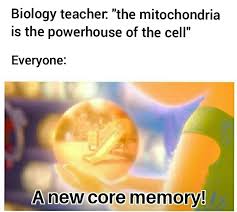It took me until my twelfth year of schooling to realize my teachers actually liked the subjects they taught. Which led to an even more sudden realization my teachers were people. And they had these whole lives before they started teaching.
In my junior year of high school, I had this peppy physics teacher who seemed to love physics. I say seemed because the concept of loving physics was so foreign to me, I couldn’t acknowledge it.
Every morning I’d trudge into class, hands filled with books, binders, and loose papers. I’d sit down at my desk, the lone unpaired desk in an island of five desks, and wonder how I’d ended up there when I could’ve sworn I was in bed a second ago.
One morning I was barely hanging on. My eyes opened and closed rapidly, almost as if I was blinking, but with each “blink,” I dipped in and out of consciousness. Meanwhile, the teacher was operating on a level I wouldn’t have been able to follow even if I was on Adderall. My hand remained a diligent worker, transcribing all my teacher’s notes with little managerial direction, but soon it was running out of room on the page and I worried I’d have to coordinate a joint effort with my other hand. But after cramming many ambiguous scribbles into every open space, my hand finished its task singlehandedly, and subsequently slinked down, joining the rest of my body in a stupor.
“That problem was clever,” I heard my teacher say. My ears perked up. Even in my dormant state, I couldn’t overlook this verbal incongruity. I sat there, exhausted, irritable, barely surviving. And I realized: “that problem was clever.”
And since then, there have been several physics problems where I’ve thought to myself: “wow that was clever.” My favorite problem (yes, I have a favorite problem) was on a test where we needed to identify what force causes a runner to move forward. Intuitively, you’d think it’s the force of the shoe on the ground, but it’s actually the force of friction on the runner. I got that question wrong, but I couldn’t even be mad because it was just so clever.
Since then I’ve thought a lot about my sudden change in attitude towards physics, and I’ve realized my other academic interests have been similarly nurtured by teachers I loved. Throughout my schooling, I’ve imprinted many soundbites from teachers into my brain:
“History is all about the choices humans make.”
“Words have connotations.”
“Excuses are like armpits. Everyone has them.”
Each time, it’s clear it’s a person–not just a lecturer–speaking in their own words, imbued with their own personality and passion; each time my ears perked up. I’ve heard all kinds of stories from teachers. I’ve had teachers tell me they were bookworms and straight-A students and a professor tell me his freshman year GPA was a 1.5. Despite coming from all kinds of backgrounds I can imagine all my teachers have had teachers who’ve inspired them and made them want to inspire others.
People connect with people much better than they connect with abstract concepts. It’s a truth I’ve read in On Writing Well, a nonfiction book by William Zinsser. Zinsser argues that if you have a boring subject matter as a writer, find the passionate people involved to enliven it. As he puts it: “behind every storm sewer is a politician whose future hangs on getting it installed and a widow who has always lived on the block and is outraged that some damn-fool legislator thinks it will wash away” (Zinsser 77).
One might argue school isn’t for entertainment, but rather for education. They may imagine education as simply memorizing facts, and to this goal, their ideal classroom would consist entirely of dense google slide presentations. But engaged students learn quicker. In psychology, studies have shown that when people make meaningful connections with new information, they’re more likely to remember it (Bernard). Thus, a teacher’s job shouldn’t be to simply present facts but to make students care. Teachers should provide a framework of facts for students to pour their imagination into.
Many students complain the only thing they remember from school is that “the mitochondria are the powerhouse of the cell.” Although the phrase has lost luster from repetition, I’d imagine there’s a reason most students remember it. The sentence has a metaphor; it has a personality. At some point, someone, somewhere was sitting at their desk thinking: “this part of the cell produces energy, almost like a powerhouse.” And they found the imagery so fanciful, they wrote it down. For decades since educators have chosen to pass on this phrase to generations of students who can’t seem to forget it.

P.S. I know the title is grammatically incorrect since ‘mitochondria’ is the plural form of ‘mitochondrion,’ but ‘mitochondria is’ is the phrase that most people and memes (like the one above) use.
